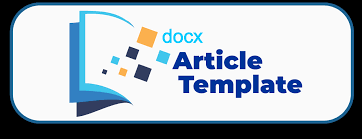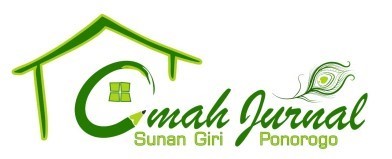Pemanfaatan Mobile Application Si-Apik bagi Perempuan Pesisir Pelaku Usaha Sektor Pariwisata Maritim
Utilization of the Si-Apik Mobile Application for Coastal Women Business Actors in the Maritime Tourism Sector
DOI:
https://doi.org/10.37680/amalee.v4i1.2658Keywords:
covid-19 pandemic, cyclone seroja, msme, tourism sector, si-apik application, ultra micro financingAbstract
Covid-19 pandemic and Tropical Cyclone Seroja have had a negative impact on MSMEs in the tourism sector in Kupang City. The closure of tourist sites resulted in a decrease in the family's economic capacity. This phenomenon is agreed in priority issues of partners who are unable to measure their financial ability to deal with business uncertainty which then has an impact on low access to capital. The aim of PKM is to empower business actors to be able to maintain their business in order to improve the family economy. Empowerment of management aspects using the PRA method through Secondary Data Collection, Focus Group Discussion (FGD) and Participatory Modeling Mapping and implementation stages through outreach, training/simulation and mentoring as well as evaluating the use of the SI-Apik application and ultra-micro financing for tourism businesses in Lasiana City Beach Kupang. Partners are 5 housewives who have been running the business for more than 10 years. The analysis results showed an increase in understanding, knowledge, ability, and skills in utilizing financial applications between >50%-100% for 5 indicators and 20%-40% for 4 achievement indicators. Ultra micro financing activities reach ≥80%.
References
Aulia Rida, Kusumastuti Retno, Kota, P. (2022). Pemberdayaan Masyarakat Bidang Pendidikan , Kewirausahaan , dan Lingkungan Pendahuluan. Jurnal of Community Research and Engagement, 3(1), 71–84.
Chambers, R., & Conway, G. R. (1992). Sustainable rural livelihoods: practical concepts for the 21st century. IDS Discussion Paper, 296.
Chambers, Robert. (1994). The Origins and Practice of Rural Appraisal. World Development, 22(7), 953–969.
Cole, S., & Ferguson, L. (2015). Towards a gendered political economy of water and tourism. Tourism Geographies, 17(4), 511–528. https://doi.org/10.1080/14616688.2015.1065509
Fitriyah, R. D., & Ansori, T. (2022). Diversifikasi Pengelolaan Hasil Tangkap Nelayan Dusun Kaligung Pasuruan sebagai Upaya Ketahanan Ekonomi Keluarga Pesisir. Amalee: Indonesian Journal of Community Research and Engagement, 3(2), 425–442. https://doi.org/10.37680/amalee.v3i2.2093
Kharisma, B., & Wibowo, K. (2019). Consistency of Planning and Budgeting of Basic infrastructure in West Java Province. Economics Development Analysis Journal, 8(1), 65–80. https://doi.org/10.15294/edaj.v8i1.28129
Manafe, Mesri Welhelmina N.; Seseli, E. M. I. (2017). Perempuan Pesisir Pelaku Usaha Pariwisata pada masa Pandemik Covid-19 dan Pasca Badai Siklon Seroja. November, 225–231.
Manafe. Mesri. W.N, D. (2022a). AKTUALISASI WISATA, BUDAYA DAN PENDIDIKAN - OSF https://osf.io › y35k6 › download. In Akademia Pustaka.
Manafe. Mesri. W.N, D. (2022b). Support Sistem Literasi, Konservasi Dan Ekonomi Kerakyatan.
Manafe, M. W. N. (n.d.). Kewirausahaan Era Society 5.0.
Manafe, M. W. N., Ohara, M. R., Gadzali, S. S., Harahap, M. A. K., & Ausat, A. M. A. (2023). Exploring the Relationship Between Entrepreneurial Mindsets and Business Success: Implications for Entrepreneurship Education. Journal on Education, 5(4), 12540–12547.
Muchlashin, A., Putri, W. A., Asya’bani, N., & Nurfajrin, S. (2022). Pemberdayaan Ekonomi Masyarakat Nelayan di Kampung Mumes Raja Ampat Papua Barat. Amalee: Indonesian Journal of Community Research and Engagement, 3(2), 235–249. https://doi.org/10.37680/amalee.v3i1.1562
Muluk, M. R. K. (2020). Pemetaan Potensi Pariwisata Berbasis Komunitas Melalui Eksplorasi Keunikan Seribu Pantai di Malang Selatan. Engagement: Jurnal Pengabdian Kepada Masyarakat, 4(2), 309–326. https://doi.org/10.29062/engagement.v4i2.93
Prasetyo, S. I., & Nugroho, A. W. (2022). Pemberdayaan Kelompok Wanita Tani dengan Produktivitas dan Peluang Usaha melalui Pelatihan Abon Lele di Kabupaten Sleman. Amalee: Indonesian Journal of Community Research and Engagement, 3(2), 443–455. https://doi.org/10.37680/amalee.v3i2.1322
Secretariat, W. T. O. (2020). This document has been prepared under the WTO Secretariat’s own responsibility and is without prejudice to the positions of WTO members or to their rights and obligations under the WTO. 1. August, 1–9.
Tajeddini, K., Ratten, V., & Denisa, M. (2017). Female tourism entrepreneurs in Bali, Indonesia. Journal of Hospitality and Tourism Management, 31(June), 52–58. https://doi.org/10.1016/j.jhtm.2016.10.004
VIRGIAWAN, S., Herawati, A. R., & Dwimawanti, I. H. (2022). Pemberdayaan Objek Wisata Bukit Widodaren Desa Sendang Ijo Kecamatan Selogiri Kabupaten Wonogiri. Amalee: Indonesian Journal of Community Research and Engagement, 3(2), 479–490.
World Bank Group. (2017). Women and tourism: Designing for inclusion. 33–45.
Downloads
Published
How to Cite
Issue
Section
License
Authors who submit manuscript retain its copyright and grant Amalee right of first publication licensed under a Creative Commons Attribution-ShareAlike 4.0 International License (CC BY-SA 4.0) that allows others to access (search, read, download, and cite), share (copy and redistribute the material in any medium or format) and adapt (remix, transform, and build upon any material) the work for any lawful purpose, even commercially with an acknowledgement of the work's authorship and initial publication in Amalee: Indonesian Journal of Community Research and Engagement.














